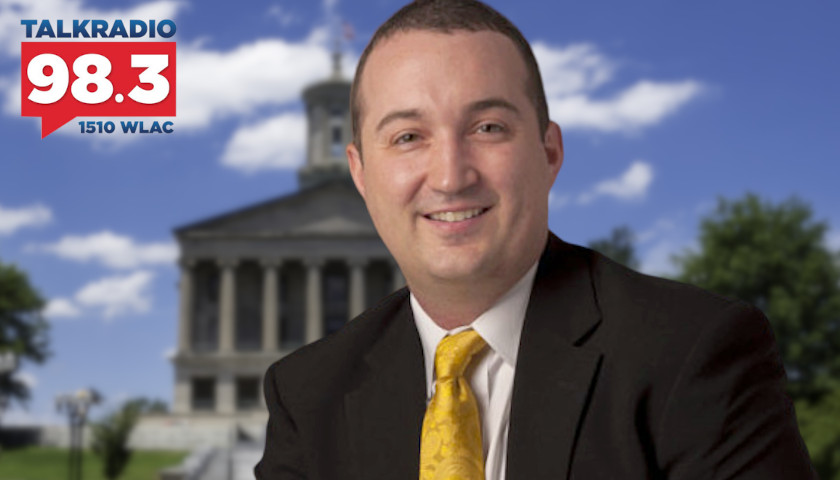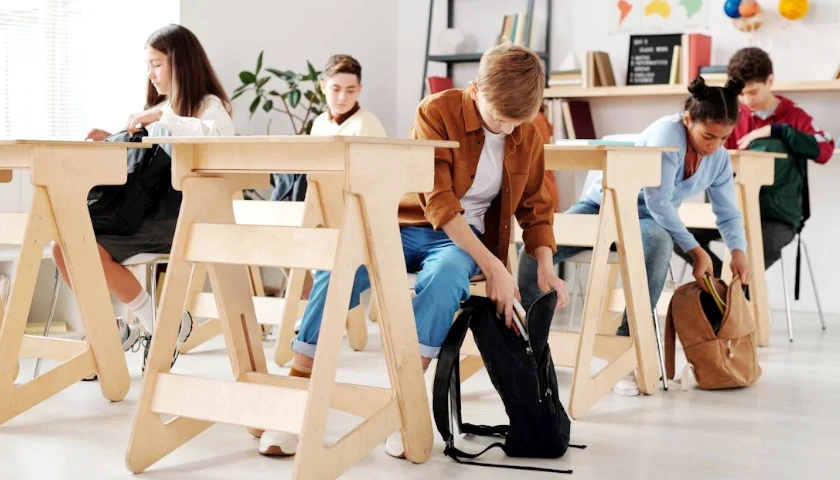On Wednesday’s Tennessee Star Report with Michael Patrick Leahy – broadcast on Nashville’s Talk Radio 98.3 and 1510 WLAC weekdays from 5:00 a.m. to 8:00 a.m. – guest host Ben Cunningham welcomed Beacon Center of Tennessee’s Ron Shultis to the newsmakers line.
During the second hour, Shultis explained House Bill 2638 would put “guard rails” on local government, forcing them to put any type of property tax legislation to a vote. He noted that if counties and cities at the local level want to raise revenue, they’ll have to put it on the ballot. Cunningham expressed relief with the news stating that the government needs to be held in check.
Cunningham: I want to talk right now with Ron Shultis, the director of policy and research at the Beacon Center. Ron, good morning.
Shultis: Good morning. Thanks for having me.
Cunningham: Sure. Thanks for calling in this early. (Chuckles) It’s very early, and we appreciate you taking the time to call in. The Beacon Center is a fabulous organization that promotes free markets and that promotes freedom in general. Keeps the government accountable and in check. And thank goodness for all the work you guys are doing. You have been doing it for years and years and years.
I know that the taxpayers of Tennessee have no idea of all the good things that you guys are doing every day. And I for one appreciate it as an activist that’s been involved in these taxpayer issues over the years. I cannot tell you how much I appreciate the Beacon Center for being there.
Shultis: Well I appreciate it. Sometimes its a good fight and somebody has got to do it. I’m happy to help.
Cunningham: And talking about this property tax cut. In this case and like in so many cases we have own taxpayer dollars being used to lobby against us. In this case, and again this is my opinion. I’ll let you express yours. I don’t want to put words in your mouth.
Many times the county mayors, for example, will form an association or the county sheriff’s, or county tax assessors. And they’ll form this association and pay the dues to these associations with, you guessed it, taxpayer money. These associations then take that money, hire a lobbyist to go to the capital and lobby what they say are their interests. Well, they ought to be lobbying for our interests.
They shouldn’t have to hire a lobbyist with our money to lobby our interests. If they’re lobbying our interests than it should be pretty straight forward. They should go up there and lobby our interests. But in so many cases, they don’t lobby our interests. They lobby against our interests. What we want to talk about this morning is this property tax bill. Tell us about it and just kind of in general what it does.
Shultis: So our property taxes were the number one issue that we’ve heard from people across the state this year. Our state capital and legislature have done a really good job of cutting taxes over the years. Whether it’s putting the income tax in our constitution, getting rid of the hall tax, and the death tax. But it doesn’t do people a lot of good if their taxes are cut at the state level to have them increase at the local level.
Cunningham: Hallelujah.
Shultis: We were able to track over two million dollars in proposed property tax increases across the state this year alone. So we did some research and found out, one of the main reasons why we don’t have any statewide guard rails over local property tax increases. We’re actually only one of four states across the country that don’t. Forty six have something along these lines.
It’s Tennessee, New Hampshire, Vermont, and Hawaii. Not really good company. So what we wanted to propose was something simple. That a local city or county can increase its total revenue through property taxes a certain amount per year. Inflation plus two percent. It can do more than that if they want to, but, they’ve got to put it up on the ballot for voters to decide.
(Commercial break)
Cunningham: Here in Nashville, for example, two years ago we had the big vote on the transit referendum. Huge, huge dollars. Billions and billions of dollars were going to be spent on this boondoggle.
The way they were going to put trains in the middle of our roads. They said they were going to improve traffic by putting trains in the middle of the roads. I kid you not. Well, people saw right through it, and they voted against it by a 2 to 1 margin. It was a huge defeat for this sales tax increase.
And I’m glad to have been part of the team that delivered 3,000-yard signs to people all over Davidson County. And we had other people working hard on this and defeated it 2 to 1. But the people got to vote. And the people got to participate in that decision. Ron Shultis is with us this morning talking about another method that the Beacon Center is proposing where people can get involved in property tax decisions.
Property taxes are the biggest source of revenue for the government. And right now property tax increases can simply be passed by a majority vote of the county commission. And Ron is proposing legislation that will change that. Tell us how this piece of legislation works.
Shultis: No problem. The conflict is very simple. We give counties and cities to raise property taxes a little bit every year. Inflation plus two percent. If they want to do more they have to be able to convince the voters by putting it on the ballot. If you want that extra revenue, you have to make the case to voters, and they have the ability to vote on a higher property tax increases.
Cunningham: And you know, people don’t realize that the two other major revenue producers for local governments in many cases require referendum already. Like this local option sales tax. If you increase the local option sales tax it always requires a referendum.
Shultis: Yes. It’s not unusual.
Cunningham: And the wheel tax in many many cases you can force that on to the ballot. I’ve been involved in dozens of those petitions whereas the county commission passes an increase on you when you buy your tag. And you can get a petition together and force it on to the ballot. But there’s no such option like that with the property tax. Where do we stand with this legislation? Is this the first year it’s been proposed?
Shultis: This is the first year that we’ve proposed anything similar to this. We’re pretty early on in session so what we’re trying to do is once you throw it out there, you get everybody biting and offering. Mostly criticisms from the local level but also some constructive feedback. We’re probably going to add some tweaks to it to make sure we have the best bill possible. And then hopefully move it through and get it passed.
Cunningham: Well, how can people get involved? If they are interested in this legislation and want to get involved and put the guard rails on local government as far as a property tax increases, what can they do?
Shultis: They can go to our website to find out more information which is BeaconTN.org and our advocacy site BeaconImpact.org. They can also contact their state rep and state senator. The bill is House Bill 2638.
Cunningham: Let me play devil’s advocate here. I’ve heard people say gosh if you have something like this the local government will simply increase taxes every year to stay under the cap and we’ll have more tax increases than we had before. How do you answer that?
Shultis: Well, first of all, they can increase it as much as they want every single year. So there’s nothing stopping them from doing that now. What’s unique about our provision is …. I like to think of it as like your old phone rollover minutes before everybody had unlimited talk and text.
What it allows them to do is roll over a couple of years of that small increase they’re allowed so that way if they feel they don’t need to raise property taxes and most cities and counties don’t every year, they don’t have to feel that pressure because they can build up some bank every couple of years without losing that opportunity. Give them a little more flexibility than if they need more than the small increase allows, as long as they haven’t done increases every year they can do.
Cunningham: But if they do go higher than the cap, then they have to under this legislation they must put it on the ballot for the voters to approve it. Is that correct?
Shultis: That is correct.
Cunningham: (Sighs) That sounds great. I’ll tell you unfortunately, most people don’t have the time to go to these commission meetings and show up. And so many times the people that are there are the department heads. The employee unions. All the people that want more taxpayer money. They are focused. They are there every time.
They want your money. And they feel good about taking more of your money. They feel very justified. And they are very motivated. And we’ve got to have guard rails on the government so that we don’t have to lie awake at night wondering if they’re going to raise my property taxes again. We’ve had a lot of property tax increases here locally.
And Nashville is now considering a property tax increase. Just like the income tax. We took away the income tax, so we don’t have the liberals to play with it. And it keeps our government small. And it’s so important to have these structural limits. Ron thanks so much for joining us this morning at this early hour. We really do appreciate it.
For more information on the Beacon Center of Tennessee or to get involved visit BeaconTn.org now.
Listen to the full second hour:
– – –
Tune in weekdays from 5:00 – 8:00 am to the Tennessee Star Report with Michael Patrick Leahy on Talk Radio 98.3 FM WLAC 1510. Listen online at iHeart Radio.
Photo “Ron Shultis” by the Beacon Center of Tennessee.






Sounds good on the surface but sure curious how inflation would be calculated. Maybe it should be tied to the calculations of annual social security increase. That increase NEVER matches real inflation but it is how we on social security get a tiny increase from time to time.